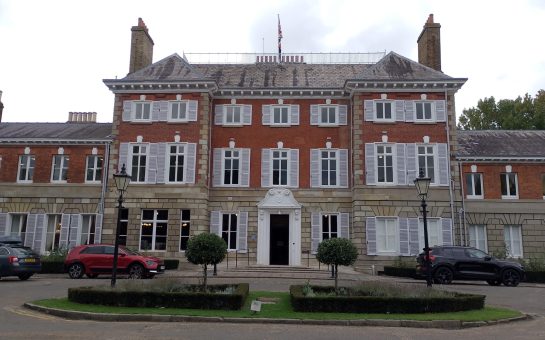No hospital trust in London has met the government’s target for gynaecology wait lists, new data has revealed.
None of the 18 hospital trusts in London met the 92% target set by the government and NHS England for gynaecological care waiting times, analysis of NHS Data from February revealed.
Under this target set out by NHS England, 92% of patients should be treated within 18 weeks of a GP referral to the hospital but the best performing trust, Chelsea and Westminster Hospital Trust saw just 83.5% within 18 weeks.
Seven London hospital trusts were found to be lower than the national average of patients seen within 18 weeks, as the lowest performing hospital trust was revealed to be Barking, Havering and Redbridge where less than half of patients were seen within this timeframe.
One 24-year-old Londoner, who wished to remain anonymous, sought a gynaecology referral for her endometriosis in London and was forced to go private because of the long wait times.
She said: “The state of care is horrendous in London and I think it corresponds to the wider scale practices of sexism in healthcare.
“I was in such pain that I had to go private.
“As women become more educated about their physical and sexual health, there will be a higher demand for gynaecologists and services need to reflect this increase in uptake.”
She had experienced pain having sex since the age of 20, and on one occasion the severity of the pain had prevented her from walking, leading to her then-partner lifting her up multiple flights of stairs.
Her experiences of pain which led to her crying took her to her GP who sent a referral to gynaecologists at the end of 2022.
After waiting almost six months for her appointment, she was then told her appointment would be moved even later, and decided to seek care privately.
Lianne Argent, 40, had a similar experience when she was referred to the gynaecologist for her endometriosis.
Argent said: “Because of the long wait time and the delay in care I was diagnosed with more advanced endometriosis and now I may need surgery and a stoma – this is subpar care that is being given.”
Their stories reflect wider figures across London which showed that some trusts saw just 58.3% of patients seen within six months of referral, as figures also revealed that almost 4,000 London patients on the list have been waiting for more than a year.
The capital has nearly 100,000 patients on the gynaecology wait list, a sixth of the almost 600,000 who are on the gynaecology waiting list across the UK.
SWLondoner also found a wide geographic distribution in the figures, as patients in north east London faced the longest waits with almost half of patients waiting more than 18 weeks.
Meanwhile patients in south west London were best off in the capital with just 38.5% of patients waiting over 18 weeks.
Dr Ranee Thakar, President of the Royal College of Obstetricians and Gynaecologists, said: “Living with often worsening symptoms whilst waiting for care puts huge limits on women’s lives and livelihoods.
“The geographic variation in waiting times is creating a postcode lottery in gynaecological care.”
Further analysis by SWLondoner showed the average (median) time waiting for a gynaecology appointment has tripled from 5.2 weeks in 2014 to 15.2 weeks in 2024, although at a slower increase compared to the rest of the UK.
The figures are reflective of wider trends across the UK, in which gynaecology has seen the fastest growing increase in waiting lists compared to other specialties.
A report by the Royal College of Obstetrics and Gynaecology in 2022 Left for Too Long showed that gynaecology wait lists grew rapidly before the COVID-19 pandemic but were exacerbated by the pandemic.
The college has launched a campaign to highlight how women’s health has been left behind and how inadequate and fragmented investment in Women’s Health services have contributed to the fast-growing waiting lists.
The report by the college also highlighted the debilitating effects on patients of long wait times, whose symptoms included extreme pain, heavy menstrual bleeding and incontinence
One London woman, Lucy, mentioned in the report who suffered from endometriosis, said: “The pain can be so acute I am unable to leave my house.
“It leaves you stuck making the decision between extreme pain or painkillers that are so strong they stop you being able to do anything but lay on the sofa and wait for it to pass.
“All aspects of my life are messed up by this pain and I am stuck in limbo.
“I am so deeply angry and upset that this has happened to other women.”
The figures came as the government earlier this year announced its top priorities under their Women’s Health Strategy, in which gynaecology wait times were noticeably absent from the list.
Dr Thakar said: “We want the Department for Health and Social Care and NHS England to set up a joint taskforce to address these waiting times.”
Fiona Wheeler, Chief Operating Officer at Barking, Havering, and Redbridge University Hospitals NHS Trust, said: “We are sorry women are waiting longer than they should.
“This is a London-wide issue where we and other trusts are experiencing unprecedented demand while continuing to recover from the pandemic.
“We’re working hard to reduce our waiting lists with a number of initiatives including focussed weeks where we carry out well above the usual number of procedures, and offering extended evening and weekend clinics, alongside additional recruitment.”
The Department of Health and Social Care, and NHS England have been contacted for comment.





